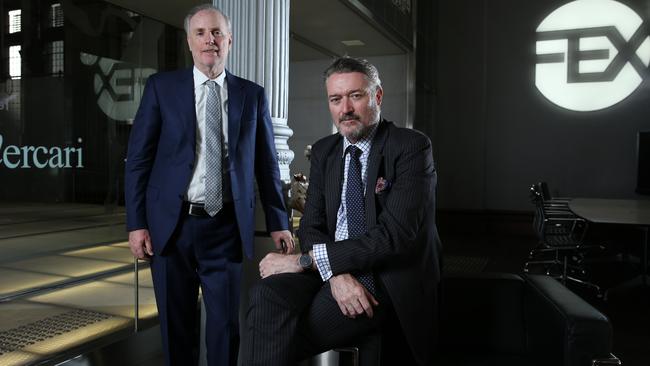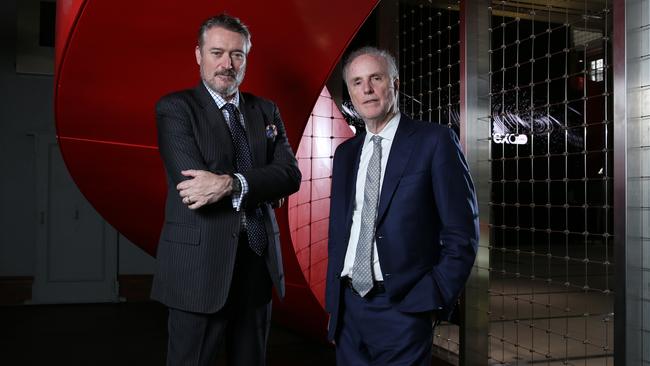FEX Global launches futures trading in Large-Scale Generation Certificates
In an industry first, Sydney trading house FEX Global is launching futures contracts offering Australian companies the chance to hedge emissions costs.

The future has arrived for Australia’s carbon trading landscape, after market challenger FEX Global secured approval to offer futures contracts in Large-Scale Generation Certificates, a key part of the country’s decarbonisation scheme.
The move opens the way for trading in FEX’s LGC futures, which offer 1000 LGCs per contract and are denominated in Australian dollars and physically settled through the Chicago Mercantile Exchange.
The futures contracts in LGCs will be Australia’s only centrally cleared environmental derivative contract, offering the corporate world a chance to hedge future prices of the emissions offsets.
LGCs sit alongside Australian Carbon Credit Units as key mechanisms of the country’s decarbonisation efforts. They represent a certificate generated by renewable energy sources.
They are intended to boost the business case for renewable energy projects.
Backed by veteran market and regulatory figures, FEX has pushed for approvals to offer futures contracts in LGCs, most recently securing sign-off from the corporate regulator. It is now ready to commence trade once market participants have plugged in to the system.
FEX founder and executive director Brian Price said the launch of LGC futures took a large element of uncertainty out of the market in the carbon derivatives.
“The LGCs are very important – it’s a very significant contract globally,” he said.
Mr Price said the launch of LGC futures trading was significant in that it allowed businesses to lock in certainty around pricing and demonstrated the potential for more futures trading in the Australian market.
The veteran trader said allowing future price discovery would bring more clarity to the carbon market.
Mr Price said businesses would be forced to start marking-to-market carbon credits held on their books, as the numbers grew, thanks to the price discovery from the futures trading.
But much trading in carbon assets is currently conducted in spot markets, leading to wild price swings.
“Right now the world is going crazy about the trading of carbon – it’s a mess,” Mr Price said.
The trading of LGC futures is seen by both regulators and businesses as a huge step forward because of the introduction of price discovery in the carbon market, which has had volatile prices as corporate Australia has bought offsets.

Clean Energy Regulator boss Mark Williamson said there was an “effective deficit” of almost 14.4 million LGCs in the market in the third quarter of 2023, and supply and demand were “very tight for at least the next three years”.
“Despite that material deficit, the spot price fell from $58 to $51.75 during the quarter and then drifted lower post-quarter to around $47,” he noted.
But Mr Williamson told The Australian the trading in LGC futures was important as it provided a “true forward signal” around pricing, with the option for corporations to hedge costs.
He said the insights into pricing would also spur companies to investigate emissions reduction or investments in renewable energy sources.
“It really helps feed into the decisions around safeguard entities on how they comply with their declining baselines,” he said.
Companies with significant emissions are required to surrender more and more LGCs every year to demonstrate their efforts towards decarbonising Australia’s economy.
Several companies voluntarily purchase LGCs as part of decarbonisation efforts.
Currently almost 33 million LGCs are required to be surrendered each year to the Clean Energy Regulator, while a further eight million are expected to be voluntarily retired.
Companies that fail to surrender their quota of LGCs must pay a $65 penalty per unit, which they can claim back in the three years following if they can secure enough of the carbon units.
Mr Williamson said mandatory climate disclosures, which are currently being explored by the Albanese government, could trigger a rush of companies into the LGC market.
“I think the futures market for LGCs would be very useful in sending signals about the amount of renewables that may be needed,” he said. “Those price signals may mean it leads to other investments that means the price doesn’t get as high as the futures market may suggest.”
Both the Australian Securities & Investments Commission and the Reserve Bank have signed off on FEX’s futures trading moves.
Former ASIC deputy chair Daniel Crennan has joined FEX as a global executive, alongside Sydney Futures Exchange founder Les Hosking, who is advising the trading house.
The move marks a return for Mr Hosking to futures trading, after early work establishing the trade in Australia.
Mr Crennan said the launch of LGC futures trading was an “important milestone for the trading of environmental products in Australia”.
“The benefits of having a market-based solution involving the development of appropriate domestic futures financial market infrastructure is critical to the economy going forward,” he said.
“With properly functioning, transparent, fair, and orderly forward energy, commodity and environmental markets, Australia could flatten volatility, create hedgeable forward curves, eliminate bilateral risk, reduce the potential for foreign price manipulation and improve information for both government and private sector planning and infrastructure purposes.”





